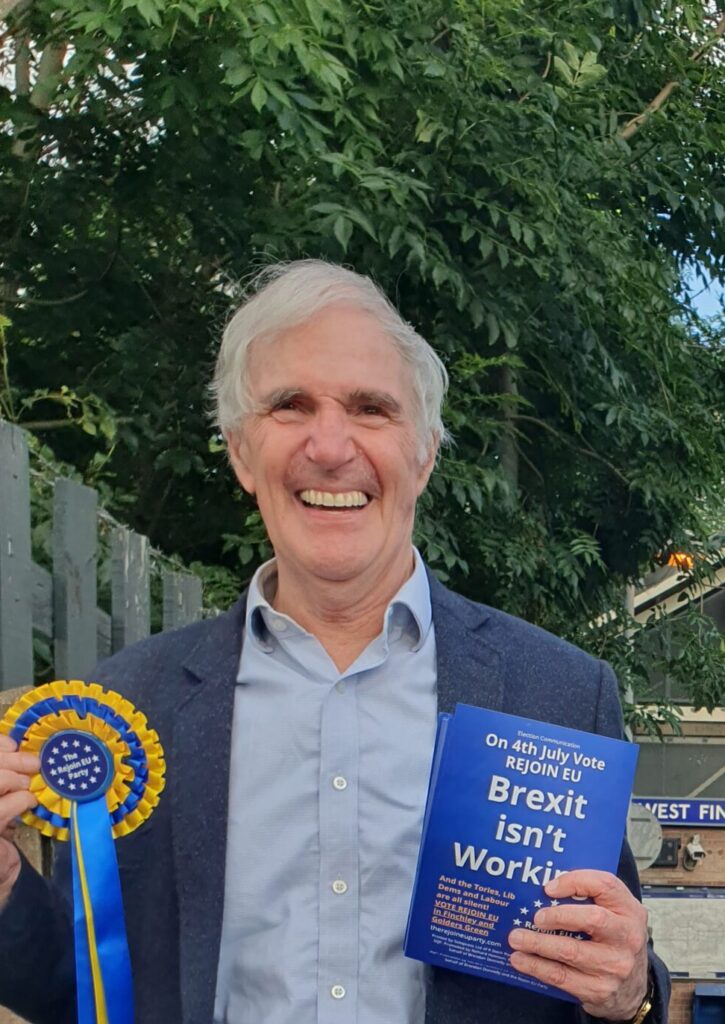Since 2020, when the UK left the European Union, British public opinion has moved in only one direction. More and more British voters are coming to realise that Brexit was a major error. The promises of its advocates remain undelivered and will continue remain undelivered in any foreseeable future, writes Brendan Donnelly.
This radical shift in public opinion against Brexit is all the more striking given the lack of political leadership on the subject.
All the national parties continue either to pretend that Brexit is working, or that it can be made to work, or that rejoining the EU can only be envisaged in the dim and distant future. There is no major political party echoing the growing majority of voters in repeated opinion polls who not merely believe that Brexit was a mistake, but a mistake that should be reversed.
That is where the Rejoin EU Party comes in. Like UKIP in its early days, we are a small party standing in a limited number of seats (26) at the General Election. We want to give the voters an option to say loudly and clearly that their political leaders are lagging a long way behind British public opinion on Europe.
The name of our Party is a manifesto in itself. We want to put an end to the damage Brexit is doing. We want to bring back economic growth, the clean rivers, the easy travel within Europe, the opportunities for our young people to work and study abroad that we had before Brexit. Perhaps most importantly, we want to restore the international respect for the UK which Brexit has destroyed.
It seems likely that this General Election will be won by a Party claiming that it wants to “make Brexit work.” Every vote cast for the Rejoin EU Party in the General Election sends a message to this new incoming government. Brexit cannot be made to work. Rejoining the EU is the only sensible option for the United Kingdom.
In a probably unnecessary attempt to reassure Eurosceptic voters, Keir Starmer has given a number of specific pledges about not joining the European single market, about not joining the Customs Union and not accepting European Freedom of Movement. These pledges will return to haunt him.
His hopes for a better relationship with the EU and for a consequent improved economic performance for the British economy are built on sand as long as he echoes the defensive and negative rhetoric of Euroscepticism.
In two years’ time, Starmer will be under much greater pressure than now, from within and outside his own party, genuinely to reset the UK’s relationship with the European Union. For this reset to occur, our European partners will understandably demand more from the UK than warm words and attempted cherry-picking.
The Rejoin EU Party will be part of that coalition encouraging the UK on its road back towards the EU. Once the first steps are taken on this road, it may well turn out to be a shorter and easier road than is often assumed.

The Author, Brendan Donnelly, is Leader of the “Rejoin EU” Political Party




